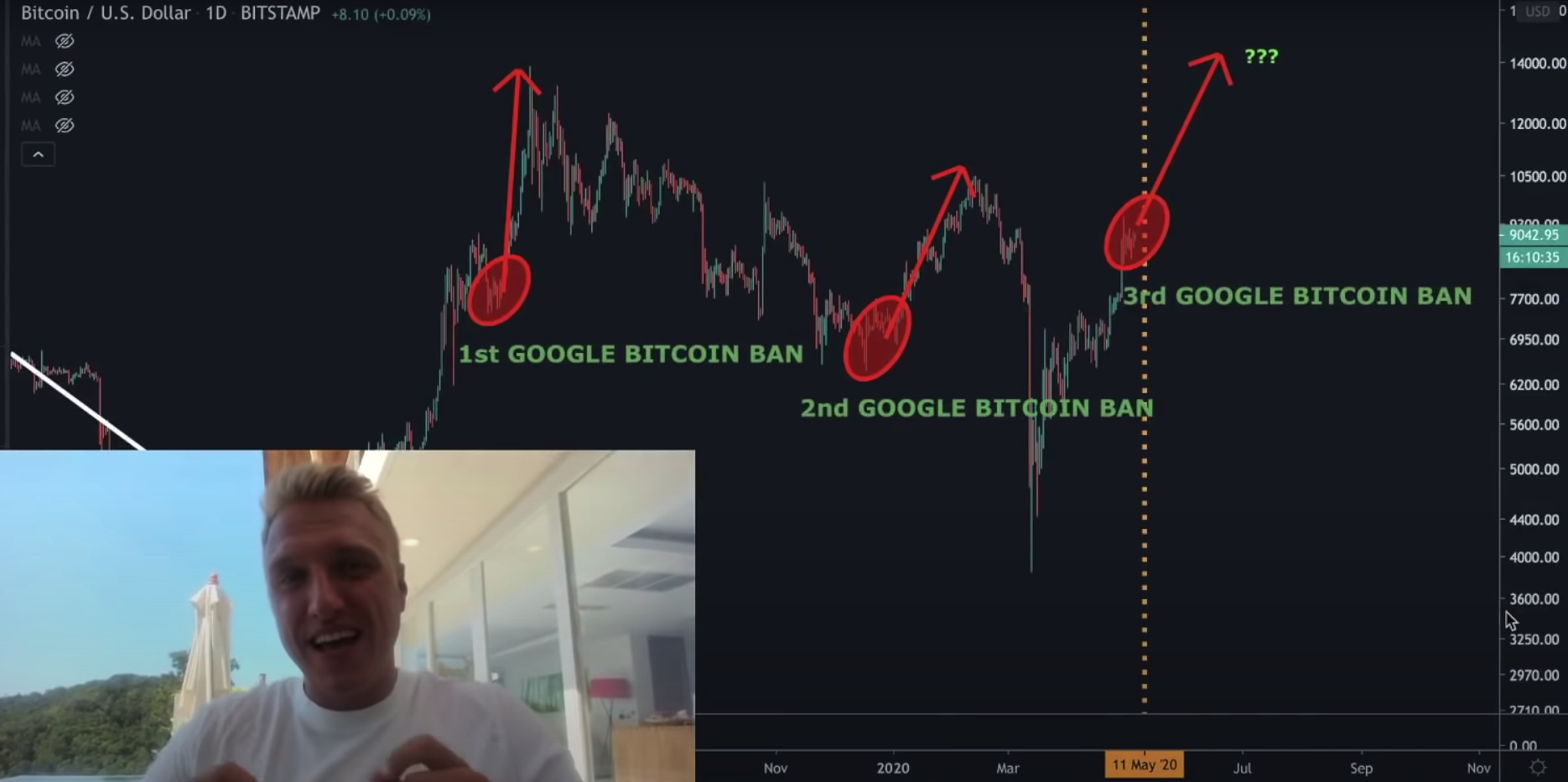Bitcoin is a leading cryptocurrency, at the heart of a digital decentralized system that flies in the face of traditional central bank-based systems – while Google is the poster child of the centralized, old-timey in nature power of mass corporations.
In many way these two are perfect enemies and have been butting heads on several fronts for a while now, including when it comes to the wider cryptocurrency community of creators on Google’s YouTube.
But now, Google is suspected of tweaking its sometimes notorious core algorithm with the goal of censoring, or shadow-banning Bitcoin on the platform.
These suspicions come as Google announced the imminent roll-out of a new iteration of what it refers to as its broad core algorithm – an event that the giant says takes place several times a year.
But it’s not uneventful on the Bitcoin side of the divide, either, as on-chain analyst and YouTuber Christopher Jaszczynski explained for Search Engine Land: the cryptocurrency is about the undergo what’s known as “halving” which usually pushes it to record high values.

“One important thing to note is that this third Bitcoin and crypto purge is happening at a very interesting timing. The Bitcoin halving is going to go down in 4 days,” he said.
According to Jaszczynski, it’s not only that algorithm tweakage that might result in further pushing the topic of cryptocurrency and creators around it into obscurity on platforms like YouTube, And a lot has already happened in that space thus far.
He says that as early as June last year and through December strikes were used on YouTube to stop creators from publishing analytical and educational videos around cryptocurrencies.
Jaszczynski also believes YouTube deliberately limits the reach of these videos through what’s known as shadow-banning, with immediately visible results in the shape of unexplained loss of views.
Click here to display content from YouTube.
Learn more in YouTube’s privacy policy.
Creators like Carl Runefelt, meanwhile, are reporting that the very mention of the word “Bitcoin” in a video’s title trigger’s YouTube’s censorship.
Jaszczynski, however, describes Bitcoin as “non-confiscatable and censorship-resistant.” And if his “educational” efforts on YouTube continue to be thwarted, he is considering switching platforms, and hoping to take other crypto creators with him.
Already, he says, the audience is “decentralized” as content is published on YouTube, but also Telegram channels and Twitter. And, “some YouTubers are moving to self-hosting in order to protect themselves.”










